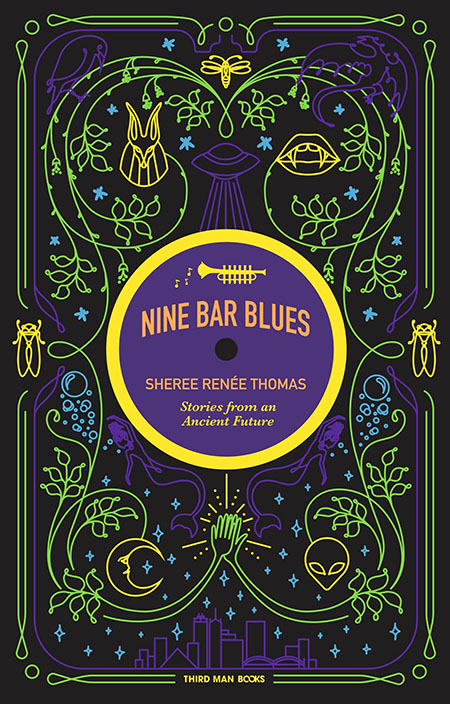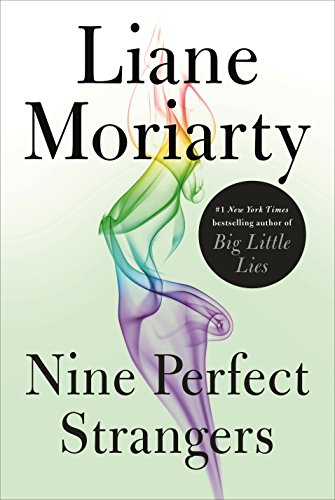Costly Redemption
William Gay’s Fugitives of the Heart is an homage to Twain
Times are hard for the characters who populate William Gay’s Fugitives of the Heart, the last in a string of posthumous novels pieced together by his friends from an attic full of scenes Gay left behind. The writing in these fragments, as always with Gay’s work, was exquisite. For J.M. White, Sonny Brewer, and the other writers who figured out how the scenes fit together, the effort was worth it, a forensic labor of love they feel even now for a writer who died in 2012. William Gay, they will tell you, was one of a kind; more precisely, he was a once-in-a-generation talent who could read the works of Mark Twain, William Faulkner, or Cormac McCarthy, absorb what they were trying to do, then do it himself and make it his own.
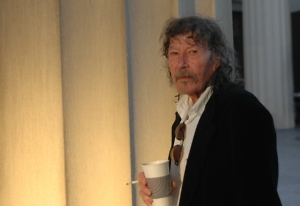
Fugitives of the Heart is Gay’s homage to Twain. Yates, the protagonist, is just a boy when his daddy is killed, shot for stealing a side of meat from a neighbor in the hills of Tennessee. He’s Huck Finn in a different century, a boy of battered nobility and heart, hard around the edges and living off the land, whose only real friend is a Black man getting by on the margins of the segregated South. This is the rough South, the hills and hollows of Appalachia, where the Depression came early and never went away and people just do the best they can. Some of them, anyway. But maybe not Yates’ daddy, whose body is dumped from the back of a wagon by the man who caught him stealing from the smokehouse. The killer also leaves the side of meat: “If he wanted it bad enough to trade his life for it then it’s hisn.”
This is where the story begins, with a moment so cruel and unexpected that it is almost more than a boy can bear. But the mountains turn pretty in the spring — “a warm wind looping up from the south” — and Yates takes heart:
He saw this early spring as a gift from the fates. A balancing of some cosmic scale. The scent of wildflower rode the winds and he moved through this Edenic world with a newfound confidence. He began to think he might make it after all.
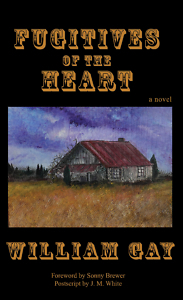 I came late to the work of William Gay, to novels like The Long Home and Provinces of Night, or the short story collection I Hate to See That Evening Sun Go Down. I was astonished by his literary gift — and after I learned it, almost as astonished by his biography. To many readers, his story is familiar; to others, not at all, even after all this time. But this was the heart of it: Gay was born in 1941 and grew up in poverty so extreme that, for many of us, it is hard to imagine — a family with no car, living in a house with no electricity, lit at night by a kerosene lamp. Gay developed a hard sense of the South, a geography of the heart that he shared with writers like Rick Bragg, Larry Brown, and Tim McLaurin.
I came late to the work of William Gay, to novels like The Long Home and Provinces of Night, or the short story collection I Hate to See That Evening Sun Go Down. I was astonished by his literary gift — and after I learned it, almost as astonished by his biography. To many readers, his story is familiar; to others, not at all, even after all this time. But this was the heart of it: Gay was born in 1941 and grew up in poverty so extreme that, for many of us, it is hard to imagine — a family with no car, living in a house with no electricity, lit at night by a kerosene lamp. Gay developed a hard sense of the South, a geography of the heart that he shared with writers like Rick Bragg, Larry Brown, and Tim McLaurin.
But Gay became a voracious reader, inspired by the words of Flannery O’Connor and William Faulkner, and discovered that he understood — technically, artistically — exactly what they were doing. He also discovered he could do it, too. In his 20s, he began to write almost full-time, eschewing other jobs unless the wolf was at the door, and “by age 35,” says White, “he had honed his style and was at the height of his powers, and he knew it. But … no one was buying.”
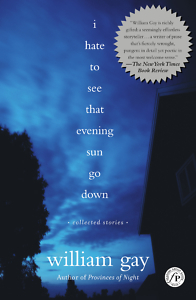 Gay was 59 and had accumulated a stack of rejections that would make most writers wither before anything he wrote was published. When I read this, I thought of my friend, the Nashville nonfiction writer John Egerton, who used to paper his bathroom wall with rejection letters from New York publishers. For Egerton, it was a wry and self-effacing way of poking fun, of maintaining his own equilibrium. But his rejections began to subside long before they did for William Gay. I asked White how he thought Gay did it. What kept him going?
Gay was 59 and had accumulated a stack of rejections that would make most writers wither before anything he wrote was published. When I read this, I thought of my friend, the Nashville nonfiction writer John Egerton, who used to paper his bathroom wall with rejection letters from New York publishers. For Egerton, it was a wry and self-effacing way of poking fun, of maintaining his own equilibrium. But his rejections began to subside long before they did for William Gay. I asked White how he thought Gay did it. What kept him going?
“The short answer,” White replied, “is William was a born writer. There was nothing else in his life that mattered from the time he was a teenager on. It was discouraging to him, but his destiny as a writer was written in the stars and he had no choice but to obey regardless of the consequences; it was his life, and he had to do it regardless of whether anyone was reading it or not.”
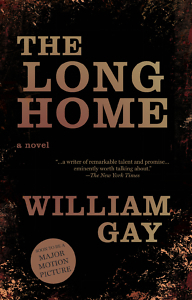 In a postscript to Fugitives of the Heart, White writes about the first time he visited Gay and they were talking about Cormac McCarthy. Gay urged White to read McCarthy’s Suttree, and White reported that he was “blown away” — not only by McCarthy’s exquisite language, but by his ability, as White put it, “to make readers aware of events without ever describing them in the text.” It was an artful literary device that White could see in Gay’s own writing. When they talked about it, Gay smiled. The prototype, he told White, could be found in Faulkner’s The Hamlet — such had been Gay’s study of the craft, the literary art, that he detected in other writers and incorporated into his work.
In a postscript to Fugitives of the Heart, White writes about the first time he visited Gay and they were talking about Cormac McCarthy. Gay urged White to read McCarthy’s Suttree, and White reported that he was “blown away” — not only by McCarthy’s exquisite language, but by his ability, as White put it, “to make readers aware of events without ever describing them in the text.” It was an artful literary device that White could see in Gay’s own writing. When they talked about it, Gay smiled. The prototype, he told White, could be found in Faulkner’s The Hamlet — such had been Gay’s study of the craft, the literary art, that he detected in other writers and incorporated into his work.
He loved to talk about his favorites, almost to revel in his own admiration. His publisher, Joe Taylor of Livingston Press, recalls him as “one of the most humble writers I’d ever met,” and in Fugitives of the Heart, Gay lets his central character find words for his respect. Late in the novel, Yates, the boy, reflects on life with the Widow Paiton, an attractive neighbor who has taken him in, offering, in this cold and forbidding land, a warm place to stay:
Nights by the fire she’d read to him Biblical tales. The stories of stern old prophets, their mad ravings… She’d temper this with Twain, a chapter a night of Huckleberry Finn, Jim and Huck in a fix on the sunrimpled Mississippi. He could almost smell the hot torpor of the river, seeing the country sliding past, until he was hopelessly snared by Twain, forced to seek out the book in surreptitious moments during the day, finishing the book far ahead of her, though she pretended not to notice and went on reading his chapter a night anyway.
Ultimately, of course, Fugitives of the Heart is not The Adventures of Huckleberry Finn, nor is it merely an echo set in another time. It is not as funny, for one thing. Its humor takes the form of irony, and while it is written in third person, not first, Gay has a gift for point of view, reflecting the world through the eyes of a ragamuffin boy, while still managing, as Twain did, to write in scenes that are lyrical and lovely — almost as if he were painting with words. But the portrait is dark. The interracial friendship at the heart of the story, which seems so promising at the start — flintier, perhaps, than the relationship between Jim and Huck, but a bulwark against a hard world — abruptly takes on the specter of betrayal. Redemption comes at a terrible cost, more in the form of authentic survival, and we are left with the unmistakable sense that this is the best Yates can hope for.
Or the rest of us, for that matter.
They had moved across the earth as briefly as the passage of the sun, then they were gone and all there was to mark their tenancy were random hieroglyphics, senseless and insignificant as a chicken’s scratching in the dust. Then the wind rose and that was gone too.
But Gay is also telling us, through his life and the body of his writing — more perhaps than in any single work — that there have to be the stories. Otherwise, the emptiness is too much to endure.
[Read a story by William Gay, tributes published after his death, and a 2009 interview with him in the Chapter 16 archives.]

Frye Gaillard, author of A Hard Rain: America in the 1960s, is writer-in-residence at the University of South Alabama.
